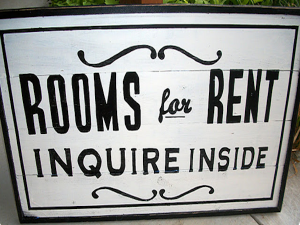There's No Place Like Home

"We are a group of concerned people seeking solutions for year-round and longer-term housing options on Ocracoke," she said. Her agenda included asking for the concerns and ideas of the meeting attendees, defining the island's housing needs, identifying some tasks, and establishing a follow-up meeting.
"Affordable housing is a real need," Jenny said. "Our economy depends on it. Everyone needs this at all income levels, from minimum wage help to the wealthiest business owners. To be the Ocracoke that people want to visit again, we need workers, and they deserve decent places to live."
The meeting attendees represented business owners, employers, worker bees, retirees, volunteers, board members of various organizations, state and county employees, infrastructure workers, singletons, couples, single parents, partnered parents, homeowners, renters, individuals with secure longterm housing, individuals seeking longterm housing, individuals facing a personal housing crisis in March or April, members of our Latino community, people who grew up on Ocracoke, people who washed ashore more recently, and representatives of the food service, retail, and lodging industries. Whew! We all wear a lot of hats. (The only constituency of Ocracoke folk not represented was "summer help" – e.g. college students, but being January, that was to be expected.)
What brought everyone to the room was concern for themselves, their neighbors, and the island's economy post-Dorian.
One full-time, year-round local employee said it would take 87% of her take-home pay to rent a room with its own bathroom and mini-fridge! One person commented, "There's a reality gap between what visitors and residents experience on Ocracoke." Welcome to paradise!
Housing issues aren't new – several attendees were looking for better options before Dorian. Many of the personal stories at the meeting were about enduring a substandard situation (tents! moldy trailers! cold showers! bugs! heat! cold!) until a better one came along. But Dorian turned an enduring hassle into a crisis, one that will only get worse as the 2020 tourist season approaches.
Homes and trailers have been demolished, families are displaced, people are crowding in with family and friends, and some long-term rentals are turning into weekly rentals because the owners need the income after a terrible 2019 fall season.
Hotels, motels, and cottages are already booked with off-island construction crews here to rebuild. In order for Ocracoke to get the regular winter ferry schedule to and from Swan Quarter and Cedar Island, the ferry division needs to find housing for 18 crew members. But where?!?
Some people at the meeting moved out of flooded homes into temporary digs in rental cottages. They are there by the good graces of the cottage owners, but most of those cottages will turn into weekly rental units by Easter.
"Spring scares me," someone said, as everyone nodded agreement.
The reality is overwhelming, but the mood of the meeting was cautiously optimistic. Attendees came to offer support, ideas, and energy toward finding solutions.
Housing needs were identified as immediate (March/April), year-round, seasonal, and longterm/planning for better solutions.
Many ideas were bandied about, including:
- dormitory-style housing for seasonal employees (where?)
- Katrina cottage kits or Deltec homes (both designed to withstand hurricane-force winds) (where to put them?)
- community land grants (a concept where an entity would own the land, but individuals would own the houses on it)
- identifying uninhabited/never-visited houses and contacting owners, especially those that haven't been opened since being flooded, to see if they would trade rent for rebuilding work
- talking to motel owners who might allow flooded units to be rebuilt into longterm housing
- getting Habitat for Humanity involved
- finding a parcel of land that could be a park with a housing area (ideas?)
- changes to county development ordinance allowing for tiny houses to share septic with existing houses
- invite speakers who've developed affordable housing in their areas to share what they've learned
- seek out organizations/donors that could see Ocracoke as a useful experimental and innovative model ("We're a petri dish," Jenny said.)
- ask a local nonprofit to seek grants and be an umbrella over the "affordable housing group"
- brainstorm incentives for property owners to allow tiny houses to be built or for homeowners to rent year-round to workforce
- get input from other organizations, and county, state, and federal agencies
- reach out to find people with good connections to possible donors
- take climate change into consideration with future housing development
One major first task that was identified and assigned was data gathering; all grant applications require lots of data. Volunteers were dispatched to find out how many people are still displace from homes they own, how many people will be homeless in the spring, who might rent a room or empty lot, how many workers it takes to run the island at full-steam in the summer, which cottage owners might consider renting year-round, and where the empty houses are.
Jenny hopes that everyone at the meeting will "get excited by an idea and pursue it."
It's not too late to get involved! If you have ideas or want to work on one of those listed above, please join in the next meeting on Wednesday, February 5th, at 7pm at the Community Center. All are welcome!
Note: the meeting included discussion of the 35 trailers that Hyde County has purchased for temporary housing, but because they are only available for 18 months, and as trailers, they won't be above the Dorian floodline, and they are intended for homeowners to put on their property while repairing their homes, the group decided to set that idea aside for the county and long-term recovery group to deal with while they pursue other concepts.



